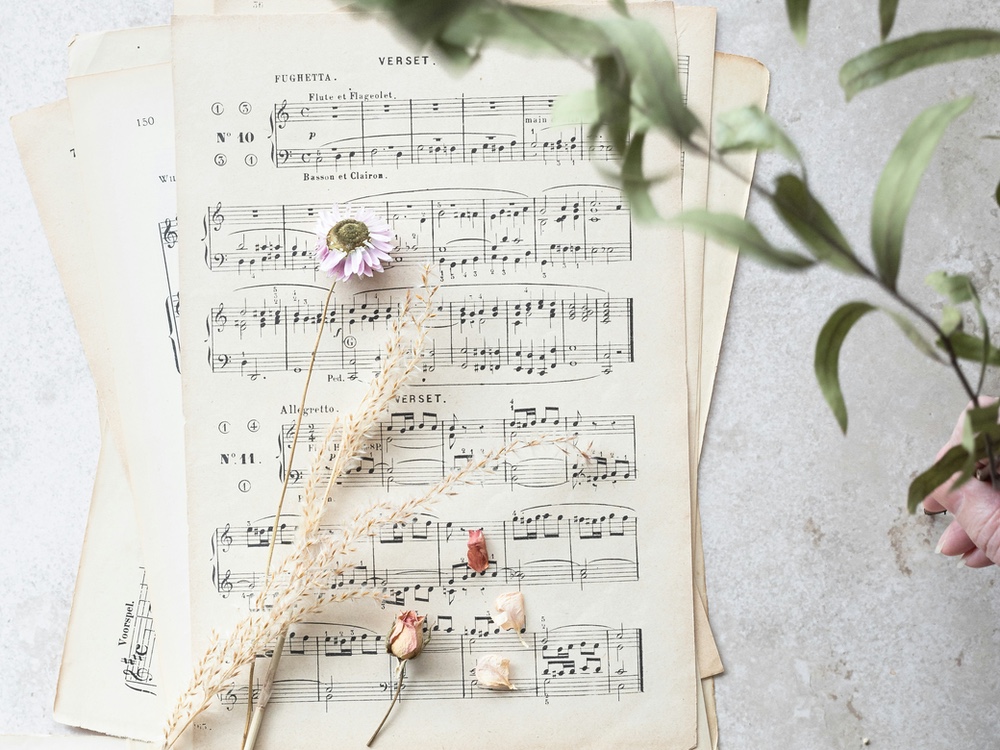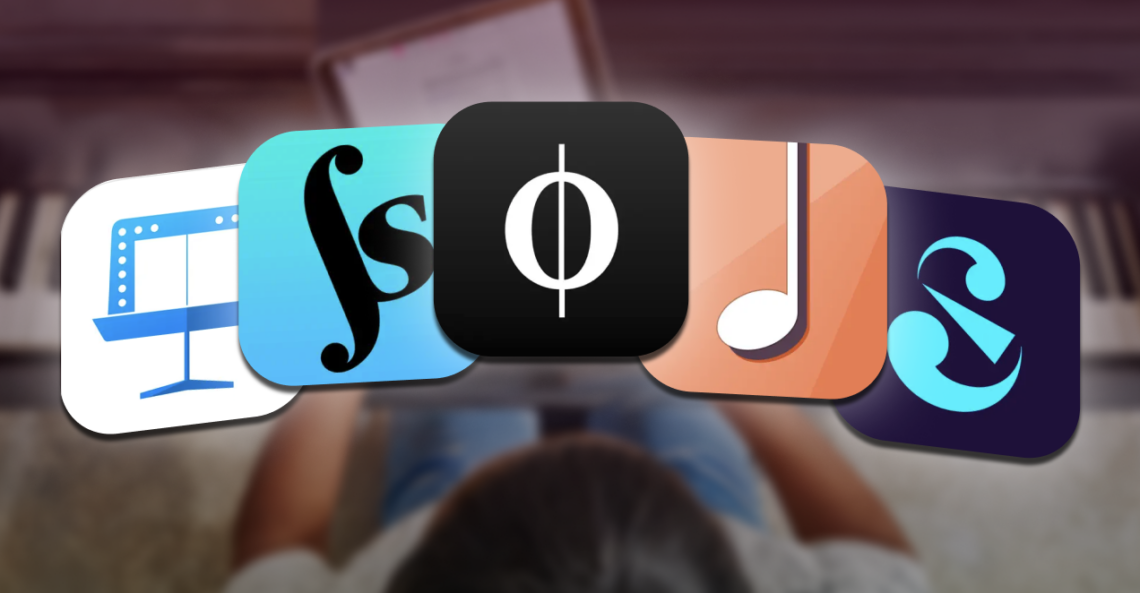You are an adult trying to learn the piano by yourself, or brush up your dusty piano skills at home? Then you’re probably wondering where to find the best content, how to stay motivated, or what to do to progress as quickly as possible. This article will answer all these questions and help you plan your personal piano-playing success.
You’re probably asking yourself:
- How can I play the piano more often?
- Where can I find content that will help me progress quickly?
- Is it possible to progress quickly if I want to learn at home?
- How do I stay motivated in the long run?
Keep reading – this article will provide you with 11 tips to help you plan your piano playing success story:
- You will know which piano to choose for your learning.
- You will know how to integrate your music sessions into your daily life.
- You will know how to keep motivated in the long term.
- You will find out how to progress faster and easier.
- You will know how to choose the best learning content.
1. How to choose your first piano

If money is no issue
If you are not restricted by your budget – wow, go for it! A beautiful instrument by a renowned piano brand is more than a once-in-a-lifetime investment. With good care, even your grandchildren and THEIR children can enjoy the instrument you acquire now. Choose an upright piano if you want to put it up against a wall, or splurge on a grand piano if space is no issue either (and hey, we’re beginning to envy you!).
How to find the right one
There are two kinds of piano store: Either go to a piano brand’s store that you like (Steinway, Bechstein, or Bösendorfer are very reputable names) or to a piano store that carries several brands if you have no particular preference. There are acoustic pianos as well as hybrid pianos that you can play with headphones if needed. Ask the sales staff for recommendations, but keep in mind that it is important to take your time and try out any instrument you consider buying. Yes, even if they’re all excellent (and have a hefty price tag!), as there can be quite a big difference in “feeling” when you play. Choose the piano that makes YOU happy.
If you are on a budget
Don’t worry, if you are on a budget you can still find the piano that makes you happy! First of all, you’ll have to decide whether you want an acoustic instrument or a digital one.
Digital keys for your digits
If you want to keep maintenance costs low we recommend you choose a digital piano. They come in all price ranges, so you should be able to find one that suits your budget. After the initial purchase, you will not have to pay for tuning, ever. Some of these you can carry home straight away in a case (They are called “stage pianos” and come without the frame. You’ll likely need to buy a stand and a sustain pedal separately).
Go to a store you like and try the digital pianos that appeal to you, talk to the sales staff for more information. Do not just buy anything that resembles a piano because it’s cheap and boasts 3000 sounds – you do need an instrument with weighted keys that behaves as a good piano should.
Acoustic pianos on a budget
A fantastic option for buying acoustic or digital pianos on a budget is to buy second-hand. If you buy an acoustic second-hand piano you will have to calculate costs for transportation (needs to be done professionally) and regular tuning and maintenance. But if that’s no problem good second-hand pianos, even old grand pianos, are often very affordable.
A second option is to rent, lease, or lease-buy a piano.
2. Do Not Get Distracted on your way to piano playing success
Avoid this mistake:
Watching or reading content about the piano rather than practicing it. It is okay to do both, and will probably serve to motivate you, but if it’s a choice between watching videos about the piano or actually practicing – go play.
This is what we recommend:
- Pick one or two Youtube channels that you like, and stick to them
- Choose a method book to work through systematically
- If you need more structure or guidance, take (online or in-person) lessons with a private teacher
3. Plan a musical space for you and the piano
Would you prefer to practice the piano in a chaotic room where everything reminds you of unfinished business, and family or flatmates walk through every couple of minutes? Or a tidy, calm place where you can concentrate on what you’re doing?
We suppose most of us would prefer a tidy room where the piano is easily accessible, and you can center your thoughts on playing. Even if you have to move your furniture a bit, make sure to find a place that fits the recommendation as closely as possible.
4. Match your schedule with your piano sessions

We’re getting to two of the most common complaints:
- How to practice the piano regularly, i.e. how to fit it into your busy schedule, and
- How to organize practice time at home, i.e. what to do during the time you have dedicated to your instrument.
Let us detour a little into the general realm of organizing and prioritizing your life.
There are, roughly speaking, four types of activities :
a. Urgent, important activities
These need to be done, or else…! And they have a deadline. Go pay your bills NOW.
b. Activities that are urgent, but not important
Yes, there is a deadline, but it can be stretched without great harm. The new show is out, but it really does not matter if you see it today or tomorrow. You need to shop for groceries, but it does not matter whether you go now or in two hours.
c. Activities that are important, but not urgent
These are the ones we struggle with the most, and this is where things like playing the piano or exercising belong. We want to do them, we really intend to. We know we need to do them. But … we want to get rid of all the urgent stuff first. After all, they’re the ones with a deadline. The solution: Create your own imaginary deadline. Be aware that things that fall into that category are important and should not be postponed. MAKE them urgent!
d. Activities that are neither important nor urgent
While we admit that watching one unboxing video after the other can be mildly entertaining, we do challenge you to concede that nothing terrible would happen if you’d spend less time on those activities. Indulge whenever the other stuff has been attended to!
Let us give you an example of how this categorization can help you manage your piano playing:
It’s 5:30. You come home from work. Instead of just throwing yourself on the couch and relaxing on Social, you have a meal and hydrate. You notice you need to do food shopping. The stores won’t close until 7:00. Instead of rushing to buy groceries immediately, you’ll sit down at your piano and start your practice session. By 6:00, you’ll have made progress on your new piece. That’s great! You’ve kept your practicing schedule, and still have at least an hour left to do your errands (and perhaps exercise afterward). When all is done, you relax on the sofa and scroll through your TikTok.
5. Play the piano daily for quick and easy progress

The most effective thing to do is to play short piano sessions every day, rather than long sessions once in a while. This is because it’s easier for our brains to accept a 10-minute piano session than an hour-long session. Moreover, our 10-minute sessions will regularly turn into 30-minute, 1-hour, or longer sessions! Because once we get started, it’s easier to continue what we’re doing.
At first, it may not be easy to integrate this new habit into your daily life. But as weeks go by, it will become as natural as the habit of brushing your teeth. Once that has happened, you will feel oddly unfulfilled on the days you don’t play the piano. And when it’s time for your next practice session, you will feel that strange pull towards your instrument! So – play daily, make it a habit, even if it’s only 10 minutes when life’s really, really busy!
6. Challenge yourself for 7 days of piano playing in a row
Up for a little challenge? Play the piano daily for a week, starting tonight. At the end of this week of daily piano playing, answer these questions for yourself:
- Was it difficult to fit the piano into my days?
- Which ones were the days I enjoyed playing the piano the most? Why or why not?
- How do I continue? Which adjustments are necessary to integrate my piano into my daily routine for the foreseeable future?
Here are some example answers:
- It was harder to fit in the piano sessions on the weekends because I had my family visit. Still, I was able to do it for 15 minutes because the piano was in an isolated room. I was embarrassed but my family let me do my challenge.
- I enjoyed playing the piano most during weekday evenings when everyone in the house was busy with other activities and I could concentrate on myself.
- I will most likely continue playing the piano on weekday evenings. To find the time to play during weekend days I need to explain to my family that these sessions are important to me.
7. Match your positive habits with your piano sessions

The idea is that you associate playing the piano with another, already enjoyable, habit you have. Thus, the positive feeling towards the already enjoyable habit will hopefully spill over to include your piano session, helping you stay consistent with your practice.
Some examples would be :
- A coffee break & then playing the piano
- Walking your dog & playing the piano afterward
- Playing the piano & then reading a little before going to bed
8. Do not put too much pressure on yourself
Let’s remember why you play the piano:
- Because it relaxes you
- Because it makes you happy
- Because it’s an activity you enjoy
Progress will come naturally. Don’t sit in front of your piano all set on becoming a virtuoso. Start your session because you simply love making music.
9. Think long-term piano success, and accept humble beginnings
Being good at something feels great! But everything we are good at, we are good at because we were once beginners at some point in the past. Whatever you’re good at – think about those beginnings. How long did it take you to become really good? Chances are, quite a while. So accept that you’ll suck at playing the piano at first. That’s what beginners do. But you’ll progress proudly!
10. Record your piano playing success story to stay motivated

Recording yourself with your mobile will allow you to be able to monitor your performance and to better spot the flaws that need correcting. If you ever lack motivation, rewatch your old practice videos. This will allow you to see how much progress you’ve made! Start recording yourself now, and have your first viewing session in 2 weeks, if you don’t believe us.
11. Have someone help you speed up
Let’s be blunt about this: a teacher will always be able to help you progress faster. This can be someone you actually visit in person on a regular basis. But it can also be someone you have online lessons with, someone to whom you send your recordings, to receive their feedback. The latter is especially valuable if you don’t want to (or cannot) schedule a fixed time during the week, or if your music school or teacher of choice lives far away. You might also want to remain flexible in when you want to be coached – on a basis of “teaching as needed”. If this option sounds interesting to you, check out the French online coaching program offered by Lison, Piano Balad‘s piano teacher.
This article was drafted as a guest article by Piano Balad. We hope you have found it useful and inspiring.



